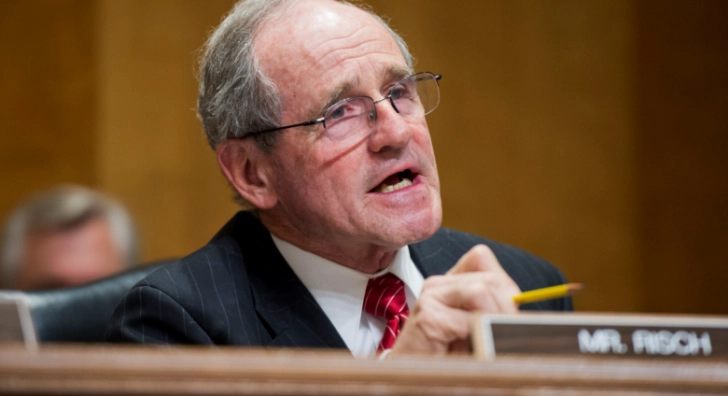
A Ranking Member of the United States Senate Committee on Foreign Relations, Senator James E. Risch has called on Ghana to prioritise the repayment of debts owed to American companies before seeking additional financial assistance from the International Monetary Fund (IMF).
This follows reports that Ghana’s incoming finance minister is considering further IMF support to address the country’s worsening economic challenges.
The debt, estimated at $251 million, is owed to several U.S.-based companies, including Twin City Energy, American Tower Company, GSM, Chubb, Kosmos Energy, and Zipline.
In a post on X, the Senator said despite numerous attempts by these companies to recover their funds, the arrears remain unpaid.
He posted: “Ghana must prioritize repaying debts to American companies before seeking additional IMF funding. The previous government repeatedly failed to meet these debt obligations”.
The senator expressed concern over Ghana’s failure to fulfill these financial obligations and criticised the lack of progress in addressing the matter.
He argued that granting Ghana additional IMF support without settling these debts could negatively impact U.S. companies abroad and set a bad precedent for other countries with similar debt issues.
Ghana’s economy has been under severe strain, culminating in a debt crisis that led the government to suspend external debt payments in December 2022.
By the end of 2023, the country’s debt arrears had swelled to approximately $2.6 billion. In response, Ghana secured a $3 billion IMF loan in May 2023 under the Extended Credit Facility programme to support economic recovery efforts.
The IMF loan was aimed at assisting Ghana with reforms such as debt restructuring, reducing budget deficits, and increasing revenue generation. However, the disbursement of the funds depends on the government’s ability to meet the set reform targets and resolve outstanding financial obligations, including those owed to American companies.
This new demand from the U.S. adds further complexity to Ghana’s economic recovery efforts. The pressure to repay American companies could impact the country’s negotiations with the IMF and other international creditors.
Resolving these debt issues will be key to maintaining access to international financial aid as the incoming finance minister considers seeking additional IMF support.


